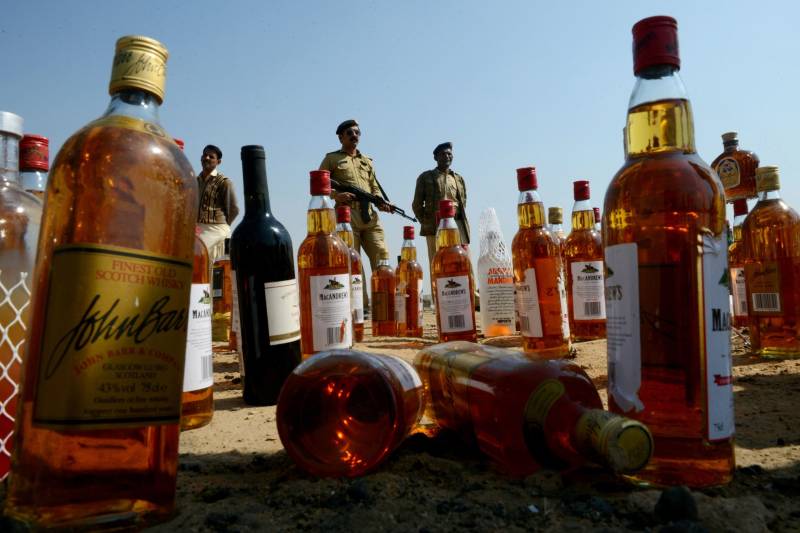
"Drinking and denying it is the oldest cocktail in the country" said novelist Muhammad Hanif in a NYT article in 2016.
While there is a stigma attached with alcohol, lockdown and the onset of fasting month of Ramazan has made it nearly impossible for non-Muslim alcohol users to get a can of beer. Although, drinking alcohol is illegal for Muslims in Pakistan, many do not abstain from enjoying a tipple.
The largest legal supplier of alcohol is the Murree Brewery that produces a range of beers and spirits catering to Pakistan's "non-Muslims" and foreign residents. Like many other manufacturers, it was officially banned to produce booze. Instead of producing drinks, Murree is now using alcohol to make hand sanitizer. “Isphanyar Bhandara, Murree's chief executive, said Pakistan's alcohol shortage means drinkers are being forced to source home-made alternatives that are frequently unsafe”, as reported by Agence France-Presse (AFP).
The hotels hand out cans and bottles to non-Muslims after confirming their identity. Around this year, hotels have been closed due to lockdown. Many drinkers have been lamenting over it and complaining the running out of stock by bootleggers. Fearing reprisals, many ask to use pseudonyms to express their concerns on media. Some complain of prices of cans touching skies. "I checked with four bootleggers. Three had run out and the last one was offering 24 cans for 15,000 rupees ($95)," said an Islamabad based person.
The underground sales persist, with bottles being smuggled into Pakistan through sparsely populated areas on the south coast. "Busting Pakistan's liquor market is quite a task as the elite of the country makes the essential consumers," a police official said according to the AFP.
Alcohol was legal for all Pakistanis to purchase until 1977, when then prime minister Zulfikar Ali Bhutto, who himself used to drink and had publicly confessed about his habits, banned its sale in an attempt to fend off right-wing Islamist parties.
While there is a stigma attached with alcohol, lockdown and the onset of fasting month of Ramazan has made it nearly impossible for non-Muslim alcohol users to get a can of beer. Although, drinking alcohol is illegal for Muslims in Pakistan, many do not abstain from enjoying a tipple.
The largest legal supplier of alcohol is the Murree Brewery that produces a range of beers and spirits catering to Pakistan's "non-Muslims" and foreign residents. Like many other manufacturers, it was officially banned to produce booze. Instead of producing drinks, Murree is now using alcohol to make hand sanitizer. “Isphanyar Bhandara, Murree's chief executive, said Pakistan's alcohol shortage means drinkers are being forced to source home-made alternatives that are frequently unsafe”, as reported by Agence France-Presse (AFP).
The hotels hand out cans and bottles to non-Muslims after confirming their identity. Around this year, hotels have been closed due to lockdown. Many drinkers have been lamenting over it and complaining the running out of stock by bootleggers. Fearing reprisals, many ask to use pseudonyms to express their concerns on media. Some complain of prices of cans touching skies. "I checked with four bootleggers. Three had run out and the last one was offering 24 cans for 15,000 rupees ($95)," said an Islamabad based person.
The underground sales persist, with bottles being smuggled into Pakistan through sparsely populated areas on the south coast. "Busting Pakistan's liquor market is quite a task as the elite of the country makes the essential consumers," a police official said according to the AFP.
Alcohol was legal for all Pakistanis to purchase until 1977, when then prime minister Zulfikar Ali Bhutto, who himself used to drink and had publicly confessed about his habits, banned its sale in an attempt to fend off right-wing Islamist parties.
